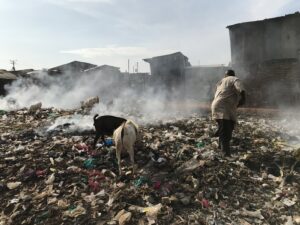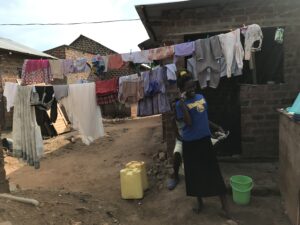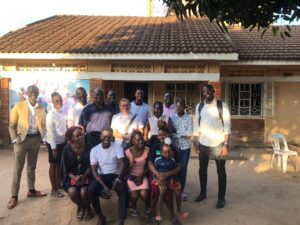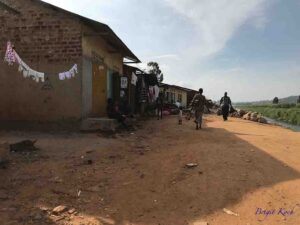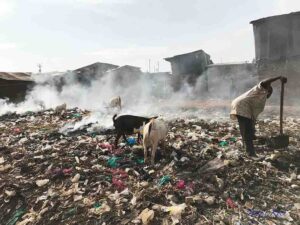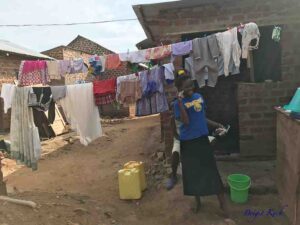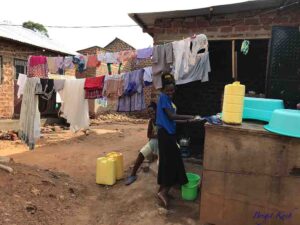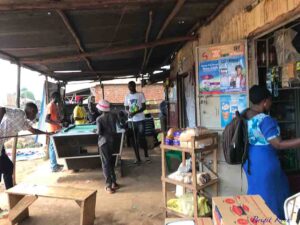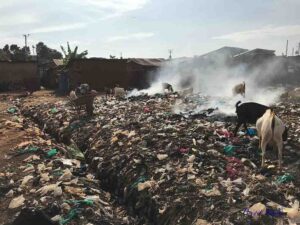Newsletter 19 December 2021
Education most needed in Uganda
Did you know that Uganda’s schools have been closed for over 2 years? Did you know that 77% of Uganda’s population are youths? This combination is bound to lead to education poverty if we don’t act immediately. Educate now with empowermefirst.college!
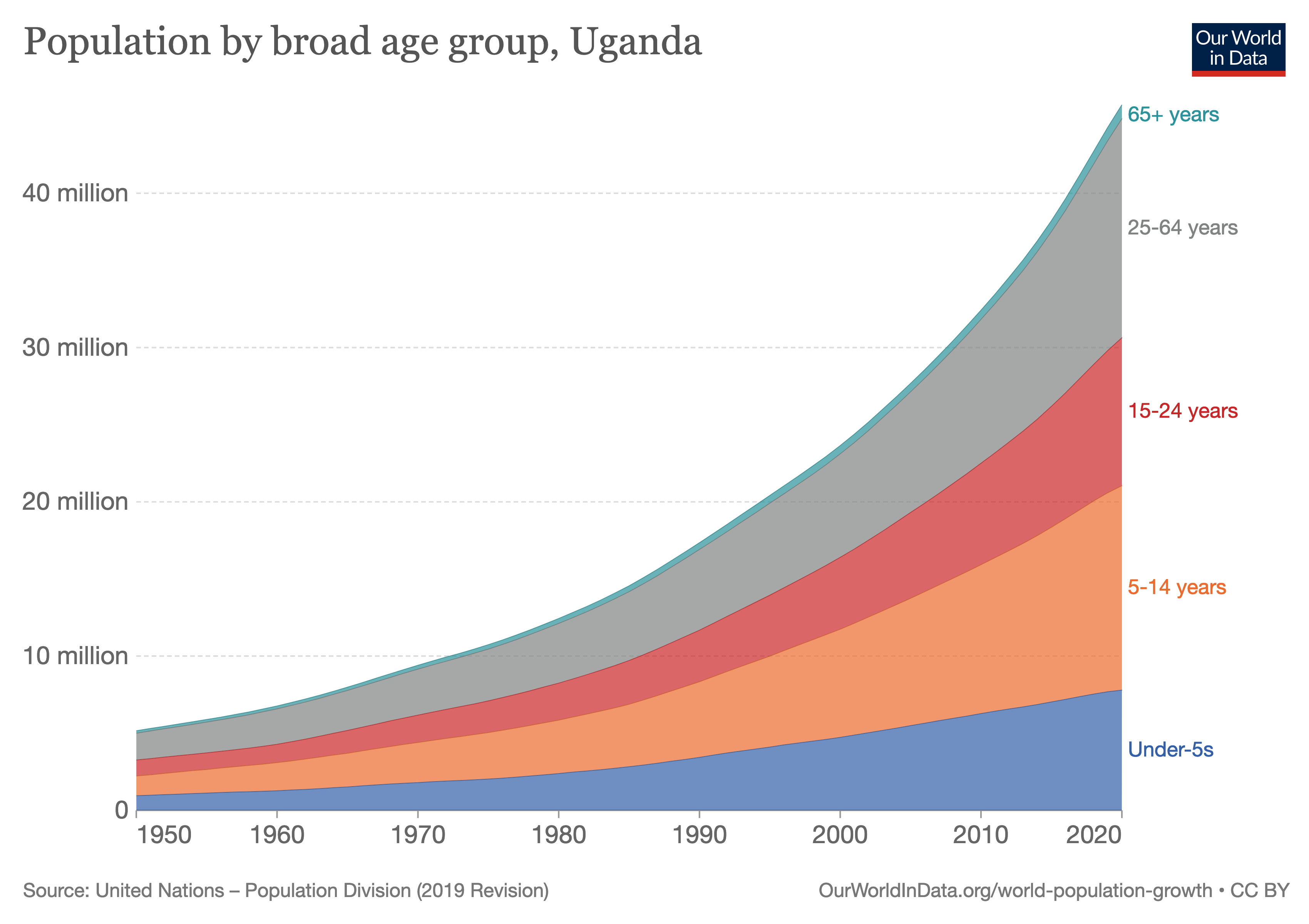
77% of Uganda's population are under 25 years of age
Thanks to the relentless work of our volunteers we were able to accomplish a lot in the past few months: We have created a draft educational content for our Learning Management System which we are currently piloting in Uganda. Not only have Uganda’s schools been closed for two years due to Covid, the pandemic has also led to a drop in the financial strength in many families, meaning that parents cannot continue to send their children to school. Many youths are trying to get employment, but they lack the skills or the formal education needed to receive a certification for vocational training. This leads to them doing unqualified jobs, high youth unemployment or to girls getting married at a young age. Internships and skills training are very hard to get hold of, meaning that even those youths who hold degrees can’t get employment because they lack the practical skills.

Share of youth not in education, employment or training in Uganda
The share of youth not in education, employment or training has risen dramatically since 2013. In 2017 it was over 30%. With the pandemic and two years of school closure a majority are affected.
Update from our pilot
On Saturday we were received in Uganda by our partners from Youth Coffee Talk Africa, Aggrey Bwaita (teamleader) and Daniel Tamusange (ICT) and Henry Lutwama, Personal Assistant to Honorable Joyce Nabbosa Ssebugwawo, Minister of ICT of Uganda, who gave us the honor of sharing dinner with us.
We are partnering with local grass roots NGOs Youth Coffee Talk Africa and their partners Touch the Slum who have already reached out to many youths for example with their skills training and other projects and will register motivated and talented youths they have identified to be the right students for our pilot. They have provided us with a lot of local insight and are guiding us on what content is needed for the youths. For example, will we extend our health education and counselling programs to help the youths tackle personal problems such as how to budget sensibly, how prevent unwanted pregnancy and how to deal with conflict to avoid domestic violence. Our entrepreneurship mentoring program will also be of great need to the youths, for instance those who were able to receive a certification in tailoring, hairdressing, photography or video editing and are planning to start their own businesses.
On Wednesday we were warmly received by the minister of ICT of Uganda, Honorable Joyce Nabbosa Ssebugwawo. In this meeting our partners from Youth Coffee Talk Africa. On this picture: Daniel Tamusange (ICT, YCTA), Dr Anthony Powell (founder, empowermefirst.college), Honorable Joyce Nabbosa Ssebugwawo (minister of ICT), Brigit Koch (founder, empowermefirst.college), Aggrey Bwaita (teamleader, YCTA), Esther Tushemereirwe (Public relations officer, YCTA) and Derrick Mugabi (communictions, YCTA). Henry Lutwama introduced us. We learned about the great need for initiatives as ours and they expect us to give a report on our findings from our pilot in Kampala and Soroti so we can discuss how we can support their need to reach dropouts best and give youths employable and monetizable skills, which we will then be able to discuss with the minister of higher education, for instance what if any adjustments to our curriculum and syllabi are needed that our student will receive university entry or vocational skills certification. Her support in different aspects of our endeavors is most appreciated.
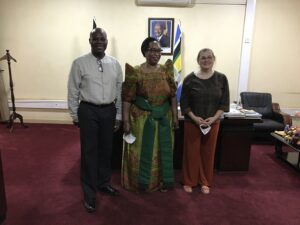
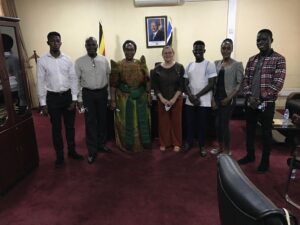

On Thursday we went to visit the largest slum of Kampala and learned about the needs and concerns of the people living there. Despite the desperate need for basic amenities such as clean water, sanitation and safe garbage disposal, the youth people we met were very positive about their future, and more so, they did very well in their entry tests, giving us a positive outlook for what we are to expect.
